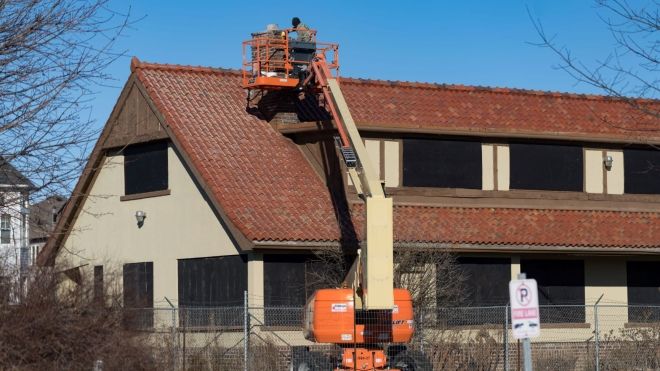At Ontario Shores our interprofessional team of clinicians work with each patient to try to match them with safe, supportive and affordable housing upon discharge from our hospital. Depending on the situation, there may be a number of different types of housing facilities that patients could be discharged to, depending on their level of functioning. While some individuals may return to a family home or independent living, others may require extra support. The current types of housing that may be available to patients leaving the hospital are outlined below.
* It is important to note that access to housing options of all varieties is dependent on the availability and needs across the community, and it may not be possible for a patient to obtain their preferred housing option.
Types of housing that may be available to patients leaving the hospital:
Supportive Housing: Supportive housing is a type of affordable housing that provides support services to individuals with mental health issues. These services may include case management, counseling, and life skills training. Supportive housing provides a stable living environment and helps individuals maintain their mental health.
Examples include housing through Durham Mental Health Services or the Canadian Mental Health Association’s Community Homes for Opportunity (CHO) program.
Private Group Homes: Private group homes are residential facilities that provide assistance with daily living activities for individuals with mental health issues. These homes typically have staff who provide meals, medication management, and other support services. Private group homes provide a safe and supportive living environment for individuals who may have difficulty living independently. Rooms are generally shared by two residents.
Transitional Housing: Transitional housing is temporary housing that provides individuals with a safe place to live while they work towards finding permanent housing. This type of housing may be especially helpful for individuals who are experiencing homelessness or are at risk of becoming homeless. Transitional housing can sometimes provide support services such as counseling, job training, and financial management.
Examples may include Durham Mental Health Services crisis beds or transitional housing through the Muslim Welfare Centre in Whitby.
Independent Living: Independent living is a housing option for individuals who are able to live on their own but may benefit from support services. These services may include case management, counseling, and life skills training. Independent living provides individuals with a sense of autonomy and independence while still receiving the support they need. Some patients may also be able to move in with family members on discharge.
Rooming Houses: A rooming house is a type of residential accommodation where individuals rent a room in a shared living space. Typically, the rooms are small and furnished with basic amenities such as a bed, dresser, and sometimes a small refrigerator. Residents share common areas such as bathrooms, kitchens, and living spaces. Rooming houses are usually less expensive than renting an apartment, making them a popular option for those who are on a tight budget or looking for temporary housing. In some cases, rooming houses may also offer services such as laundry facilities and meals.
Homeless Shelter: Some patients may choose to be discharged to a homeless shelter. While this option is not ideal, we respect the autonomy of patients to make this choice and will try to build suitable supports into the discharge plan. Moreover, a homeless shelter may be considered as a last resort if the patient no longer needs hospitalization and other housing options are not available or feasible.
Discharge to the Referring Hospital or other Local Hospital



